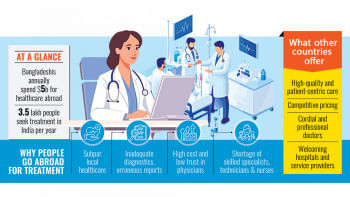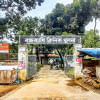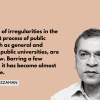To reverse medical tourism, we must strengthen local healthcare

We commend the initiatives the government is taking to improve local treatment for cancer, infertility, and heart and kidney diseases. According to a report by The Business Standard, the government aims to encourage patients seeking treatment abroad for these ailments to opt for domestic facilities instead.
While exact figures are unavailable, around 800,000 Bangladeshis are believed to travel abroad annually for medical treatment, spending over $5 billion. According to a report by Prothom Alo, 57 percent of these patients go to India, 20 percent to Thailand, 20 percent to Singapore, and the rest to countries like the UK, Japan, Malaysia, China, and the UAE. But recent Indian visa restrictions have created uncertainties for many, especially those requiring treatment for cancer, cardiopathy, nephropathy, or infertility. Against this backdrop, the government's plan to establish eight cancer hospitals and dialysis centres, each with 100 beds, across the country within the next 6-12 months is a welcome move indeed.
However, outbound medical tourism is primarily driven by gaps in local healthcare, including shortages of facilities, equipment, and skilled staff. For example, the 750-bed "super-specialised" hospital of Bangabandhu Sheikh Mujib Medical University's (BSMMU) is still operating at only 10 percent capacity two years after its inauguration mainly due to a manpower crisis. While health ministry officials assure us that it will soon be fully operational, similar mistakes must be avoided for new projects. Plans to introduce double shifts at government hospitals to ease patient pressure, and asking private hospitals to operate on a non-profit basis for at least six months, are also positive steps.
Beyond these ad hoc measures, broader reforms to the healthcare sector are also essential. Patients are often driven abroad due to the nexus between doctors and diagnostic centres or pharmaceutical companies, high costs of medicine and tests, lack of trust in local care, etc. Moreover, improving the behaviour of medical professionals, including by dedicating more time to patients, is crucial.
Increasing the capacity of the Mohammadpur Fertility Services and Training Centre (MFSTC) is another commendable initiative. Meanwhile, amendments to the organ transplant law to expand the donor pool must be done responsibly, ensuring safeguards against exploitation by organ traders. Beyond these ad hoc measures, broader reforms to the healthcare sector are also essential. Patients are often driven abroad due to the nexus between doctors and diagnostic centres or pharmaceutical companies, high costs of medicine and tests, lack of trust in local care, etc. Moreover, improving the behaviour of medical professionals, including by dedicating more time to patients, is crucial.
Our healthcare industry must prioritise service over profit. Alongside government efforts, medical professionals and industry leaders must work collaboratively to build a system that inspires trust and addresses patient needs effectively.

 For all latest news, follow The Daily Star's Google News channel.
For all latest news, follow The Daily Star's Google News channel. 









Comments